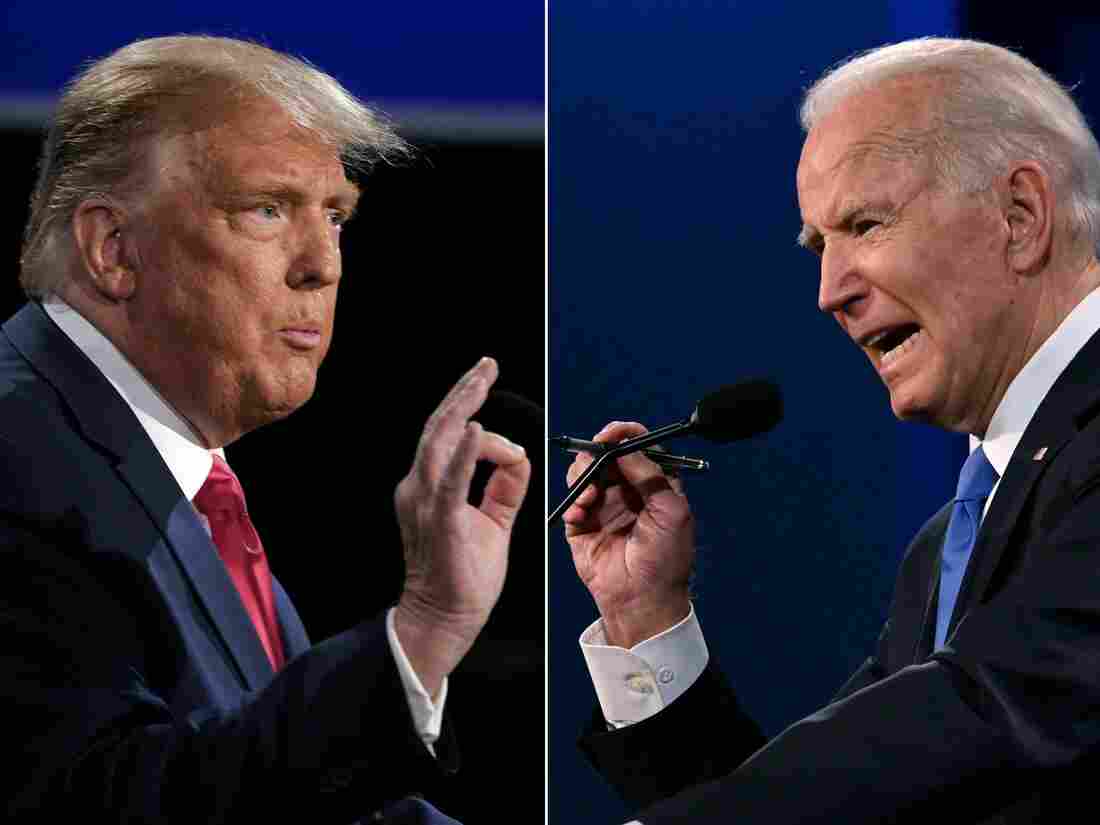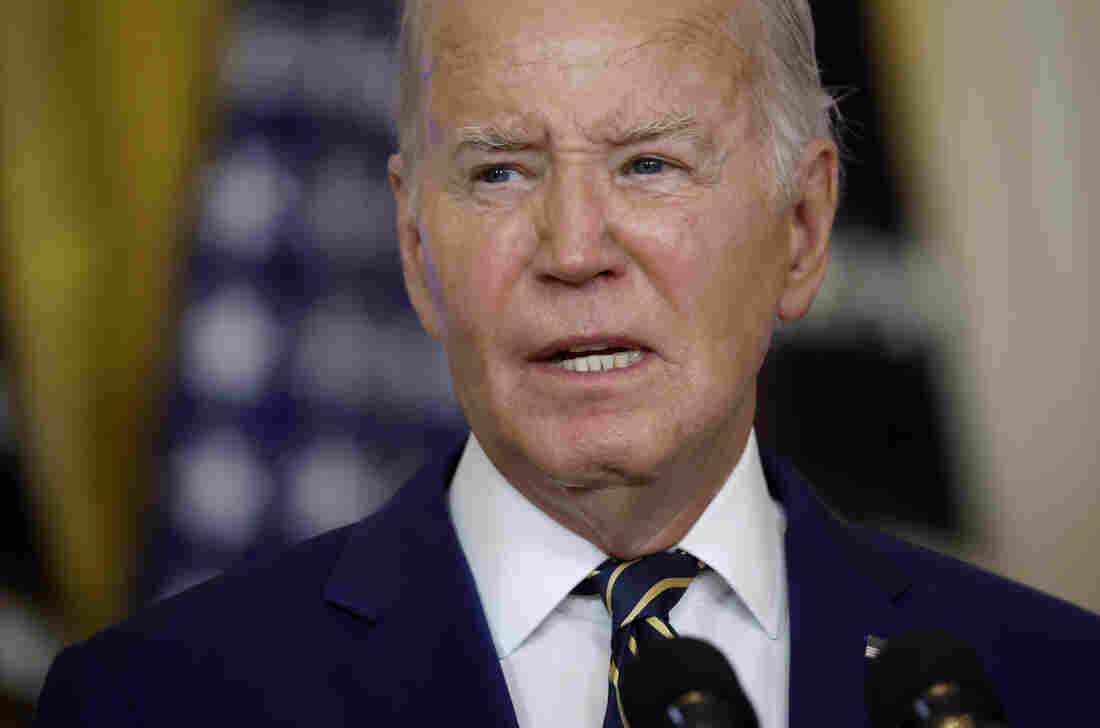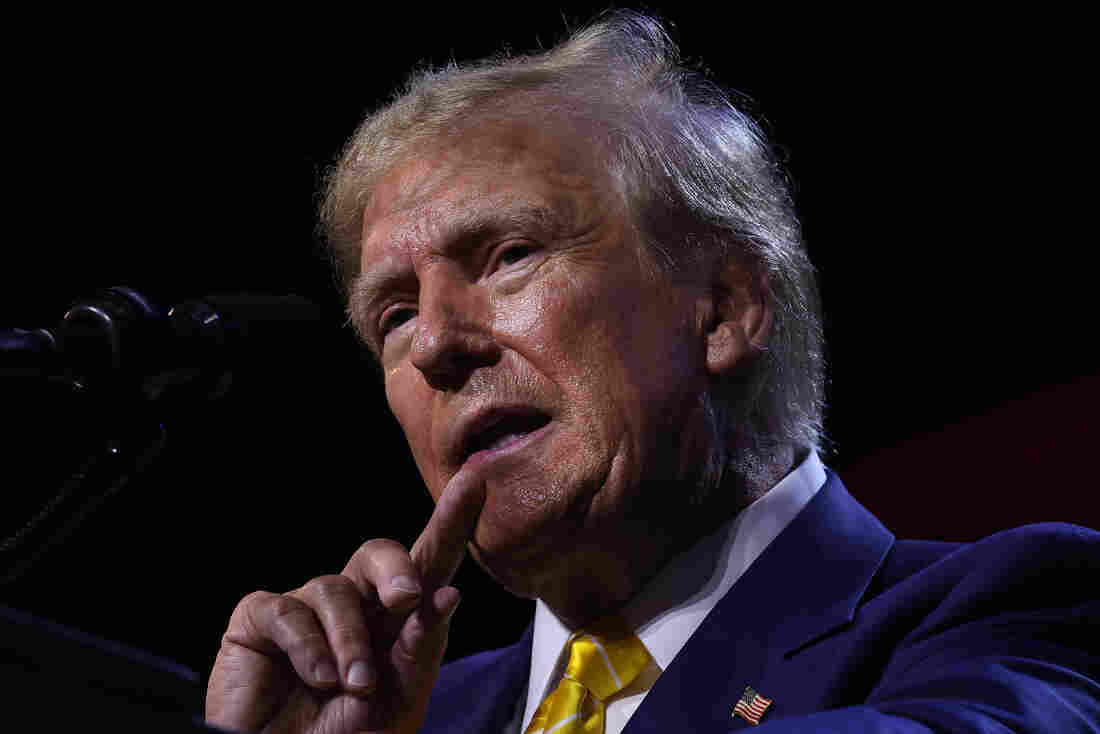
A notable chunk of people say they don’t want to vote for either Donald Trump or Joe Biden in November, according to recent polling.
Brendan Smialowskijim Watson/AFP via Getty Images
hide caption
toggle caption
Brendan Smialowskijim Watson/AFP via Getty Images

A notable chunk of people say they don’t want to vote for either Donald Trump or Joe Biden in November, according to recent polling.
Brendan Smialowskijim Watson/AFP via Getty Images
With the November presidential election approaching, some voters are wondering how we again ended up with Donald Trump and Joe Biden as the presumptive nominees.
“I find it hard to believe that in the entire nation of millions and millions of people, that we are right back to the line of two people.”
That’s how one participant put it in a recent focus group run by Rich Thau of Engagious, a public research firm. NPR partnered with him and Sago market research to hear from voters.
The focus groups were conducted with 12 swing voters who live in swing states. All participants had switched their votes from Trump to Biden in 2020. (It’s important to note these focus groups were done before Trump was convicted on 34 felony fraud charges. Yet only one person said a conviction would stop them voting for him.)
In a race that will likely be won on the margins, swing voters will play a critical part of the electorate this year. That’s because 14% of voters disapprove of both Biden and Trump, according to Marist, NPR’s polling partner.
You’re reading the Consider This newsletter, which unpacks one major news story each day. Subscribe here to get it delivered to your inbox, and listen to more from the Consider This podcast.
What the voters said
The 12 focus group participants were very clear on their feelings towards Biden and Trump. Here’s what they said when asked to say the first word that comes to mind about Biden:
- “Struggling”
- “Senile”
- “Concerned”

Joe Biden speaks in the East Room of the White House on June 4.
Kevin Dietsch/Getty Images
hide caption
toggle caption
Kevin Dietsch/Getty Images
For many participants, Biden’s age was central to their negative feelings. They had kinder words for him as a person.
Trump didn’t fare much better, with participants describing him this way:
- “Jackass”
- “Unhinged”
- “Offensive”
The participants voiced negative views mostly towards Trump’s character and temperament.
All focus group participants said they’d replace both Biden and Trump on the ballot if they could.
What this could mean in November
Double disapprovers, or voters who dislike both Trump and Biden, could pose a major problem for the candidates.
The last time the double disapproval rate was this high was in 2016, when they broke decisively towards Trump. Third party candidates could also affect the outcome in November.
Focus group participants were less sure about how either candidate would run the country if given a second term. Part of the problem may be the campaigns’ messaging to swing voters.
Only one participant could name something Biden has pledged to do in his second term — raise corporate taxes — and a Republican-leaning voter brought that up as a con for Biden.

Donald Trump speaks during a Turning Point PAC town hall at Dream City Church on June 6.
Justin Sullivan/Getty Images
hide caption
toggle caption
Justin Sullivan/Getty Images
For focus group participants, Trump’s plan for a second term was much more clear. Not all of them approved of his goals, but here are some things they said they’d expect from another Trump presidency:
- “Take America back. Fix our economy. Create more jobs.”
- “Cut off aid to Ukraine … he was considering legislation to control birth control.”
- “He’s going to fix immigration issues.”
It’s important to note the focus group results don’t tell the full story of the electorate. Polling can tell us how voters feel about the candidates at a particular moment in time. The focus groups help us get a sense of the reasons why.
There’s still a lot of campaigning left for the candidates and uncertainty about what’s to come. But the evidence is all pointing to one thing: winning over the double disapprovers could be critical for victory.



